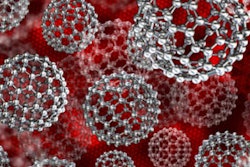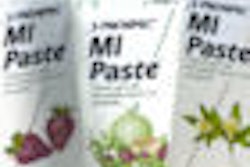A novel nanocomposite being developed by researchers at the University of Maryland Dental School shows promise as a caries inhibitor, according to a new study in Dental Materials (April 21, 2011).
The objectives of this study were to synthesize novel nanoparticles of amorphous calcium phosphate (NACP), develop a NACP nanocomposite with calcium and phosphate ion release to combat caries, and investigate the effects of NACP filler level and glass co-filler reinforcement on composite properties.
The NACP nanoparticles were synthesized using a spray-drying technique -- the first time this has been done using this technique, according to the researchers.
Since the local plaque pH in the oral cavity can decrease to 5 or 4, photo-activated composites were tested with immersion in solutions of pH 7, 5.5, and 4. Composite mechanical properties and also calcium and phosphate ion release were measured versus pH and filler level.
Increasing the NACP filler level increased the ion release, the researchers noted. In addition, the NACP nanocomposites demonstrated strengths that matched or exceeded a commercial composite with little ion release and were twofold those of previous calcium phosphate composites and the resin-modified glass ionomer control.
"The nanocomposite was 'smart' as it greatly increased the ion release at a cariogenic pH 4, when these ions would be most needed to inhibit caries," the study authors wrote. "Hence, the new NACP composite may be promising for stress-bearing and caries-inhibiting restorations."



















